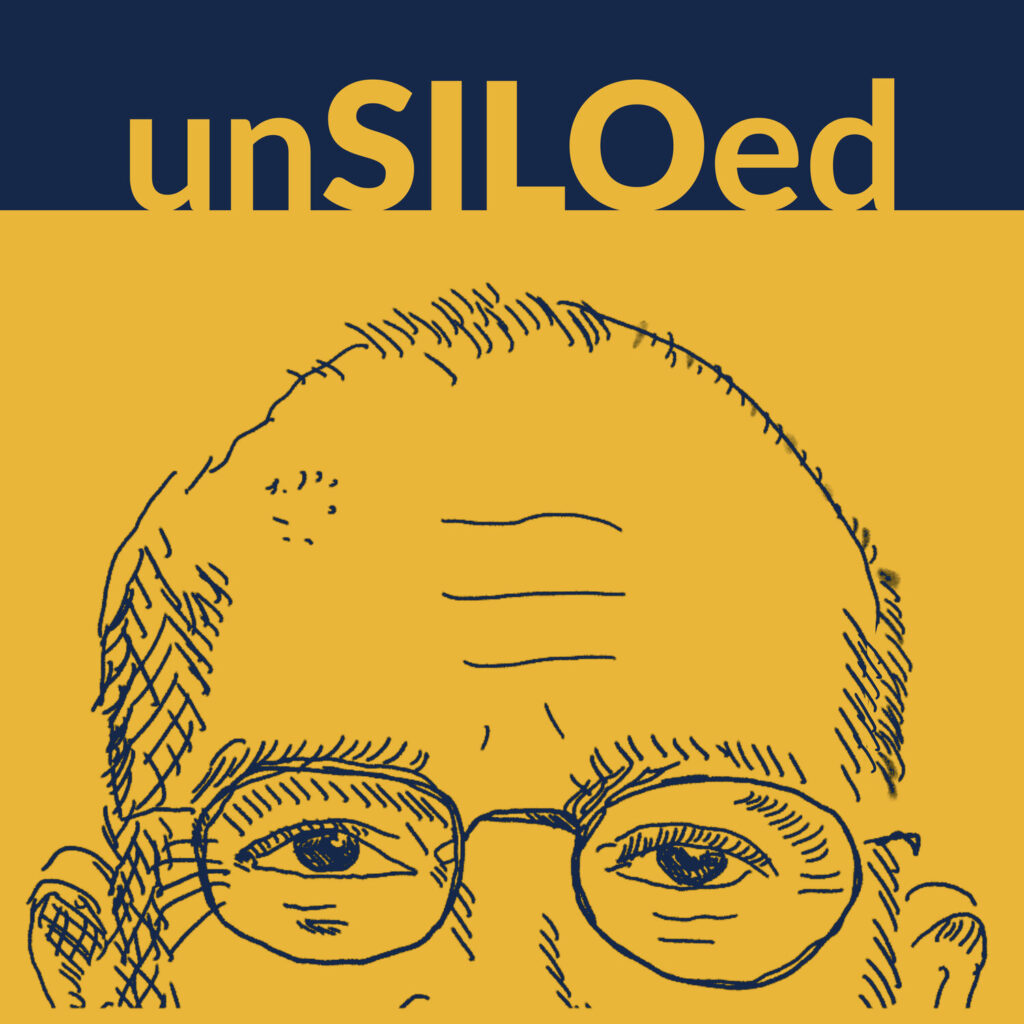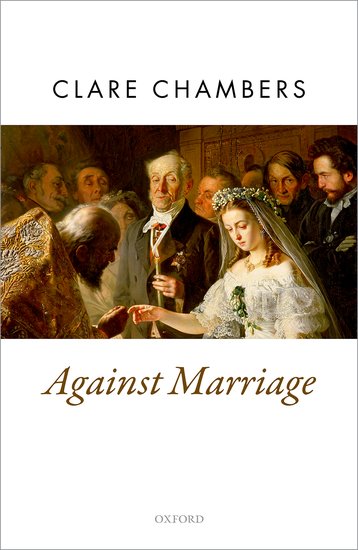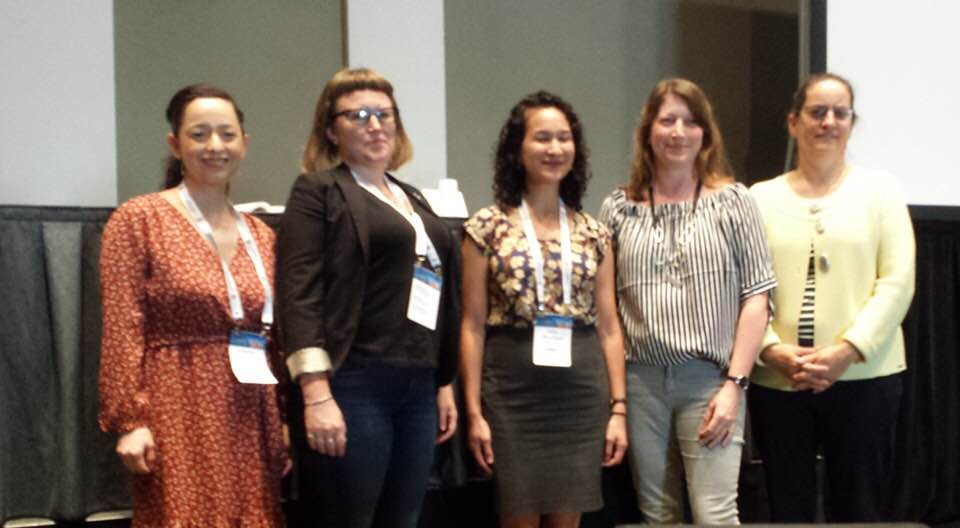Against Marriage
- Against Marriage, all posts on marriage, all posts on social construction, all posts on the body and beauty, Intact, listen, Sex, Culture, and Justice
Interview on UnSILOed podcast
It was a pleasure to discuss Intact, Against Marriage, and themes from Sex, Culture, and Justice with Greg LaBlanc for his UnSILOed podcast. You can listen to the whole episode here.
There’s a lot of philosophy books out there that are tough to read but this one (INTACT), I think, is just an example of fantastic philosophical writing. It’s profound, but it’s also a page-turner. I really enjoyed it.
- Against Marriage, all posts on feminism, all posts on liberalism, all posts on marriage, feminism, liberalism, multiculturalism and religion, publications on marriage
Against Marriage: An Egalitarian Defence of the Marriage-Free State
Against Marriage was published by Oxford University Press in 2017, with a paperback in 2019. Read the book on Oxford Scholarship Online here.Winner of the APSA David Easton Award 2018.
Synopsis
Against Marriage is a radical argument for the abolition of state-recognised marriage. Clare Chambers argues that state-recognised marriage violates both equality and liberty, even when expanded to include same-sex couples. Instead Chambers proposes the marriage-free state: an egalitarian state in which religious or secular marriages are permitted but have no legal status.
Part I makes the case against marriage. Chambers investigates the critique of marriage that has developed within feminist and liberal theory. Feminists have long argued that marriage is a violation of equality since it is both sexist and heterosexist. Chambers endorses the feminist view and argues, in contrast to recent egalitarian pro-marriage movements, that same-sex marriage is not enough to make marriage equal. Chambers argues that state-recognised marriage is also problematic for liberalism, particularly political liberalism, since it imposes a controversial, hierarchical conception of the family that excludes many adults and children.
Part II sets out the case for the marriage-free state. Chambers critically assesses recent theories that attempt to make marriage egalitarian, either by replacing it with relationship contracts or by replacing it with alternative statuses such as civil union. She then sets out a new model for the legal regulation of personal relationships. In the marriage-free state regulation is based on relationship practices not relationship status, and these practices are regulated separately rather than as a bundle. The marriage-free state thus employs piecemeal, practice-based regulation. Finally, Chambers considers how the marriage-free state should respond to unequal religious marriage. The result is an inspiring egalitarian approach that fits the diversity of real relationships.
Reviews
“Clare Chambers has produced what will surely be for years to come the definitive argument for the abolitionist view of marriage. … [T]his is in my opinion a superb book. It is prodigiously scholarly, but at the same time wonderfully clear and accessible. The arguments are provocative and challenging throughout. The literature on this vitally important topic urgently needed a book-length defense of the abolitionist position. It is hard to imagine a book performing this necessary role better than Chambers’s Against Marriage.”
Ralph Wedgwood in Ethics
Against Marriage is “political philosophy at its most practical and readable.”
Andrew Harrop, General Secretary of the Fabian Society, in Fabian Review
“This is a distinct and important contribution to an increasingly crowded field of liberal political philosophy on marriage and the state and, perhaps most interestingly, to our understanding of the liberal project broadly. … Where other liberals seek more vigorously to balance competing demands of freedom and equality, or emphasize freedom, Chambers hews rigorously to an egalitarian position. You won’t find another book that does this so effectively or by way of such productive engagement with existing scholarship. Laying out the egalitarian case in such clear and compelling terms, Chambers highlights the challenges it presents to the liberal side of her liberal feminist equation. In so doing, Against Marriage leaves us wondering just how tenable the liberal feminist project is. … Chambers leads us to these questions by bringing us to the edge of the liberal feminist frontier. This alone would make Against Marriage a distinct and important contribution. But, of course, Chambers does more. She offers a compelling vision of why and how to move beyond marriage and points us in the direction of work that needs to be done. All with the grace and graciousness of an analytical philosopher running at full throttle.”
Tamara Metz in Political Theory
“Against Marriage makes an important contribution to the debate over the future of marriage within liberalism. It is clear and cogently argued and a pleasure to read. One of its virtues is its breadth; it makes arguments which address a range of liberal and feminist views and should be accessible to non-specialists. At the same time, it advances the leading edge of the specialist debate in provocative and intriguing ways.”
Elizabeth Brake in Mind
“Clare Chambers provides a clear, lucid and timely argument against state-recognized marriage based on the liberal principles of liberty and equality. … Throughout, she is masterful at anticipating and responding carefully to potential objections to her arguments and proposals. …. And her responses to those who might disagree with her proposals reveal a two-fold carefulness: as a philosopher, she is thoughtful, deliberate, precise, and meticulous; as a feminist, she is attentive, concerned, and compassionate — considering not only the philosophical justifications for her proposals but also their practical fall out for women and other vulnerable populations. … I highly recommend Chambers’ book as an important scholarly and pedagogical resource. It is beautifully crafted and makes an important contribution to the literature in liberal political theory and, more specifically, to the philosophical literature on marriage and family. … It was my distinct pleasure to read this book and be provoked by its arguments into a better understanding of both liberalism’s promise and its limitations with regard to its support of diverse forms of relationship.”
Shelley M. Park in Notre Dame Philosophical Reviews
“Chambers’ Against Marriage is a wonderful addition to a growing literature demanding that we think seriously about the institution of marriage and how it may have to be altered to meet the demands of justice and equity.”
Robert Scott Stewart in Metapsychology Online Reviews
-
David Easton Award presented at APSA 2018
The 2018 David Easton Award was presented to me for Against Marriage: An Egalitarian Defence of the Marriage-Free State at the APSA Annual Meeting in Boston.
The Award is given “for a book that broadens the horizons of contemporary political science by engaging issues of philosophical significance in political life through any of a variety of approaches in the social sciences and humanities.” You can see previous winners of the Award here.
-
Against Marriage wins APSA’s David Easton Award
 I am delighted and honoured to learn that Against Marriage: An Egalitarian Defence of the Marriage-Free State has won the 2018 David Easton Award of the American Political Science Association (APSA). APSA say: “The David Easton Award is given for a book that broadens the horizons of contemporary political science by engaging issues of philosophical significance in political life through any of a variety of approaches in the social sciences and humanities.”
I am delighted and honoured to learn that Against Marriage: An Egalitarian Defence of the Marriage-Free State has won the 2018 David Easton Award of the American Political Science Association (APSA). APSA say: “The David Easton Award is given for a book that broadens the horizons of contemporary political science by engaging issues of philosophical significance in political life through any of a variety of approaches in the social sciences and humanities.”The citation for the Award is as follows:
“Clare Chambers’ Against Marriage: An Egalitarian Defence of the Marriage-Free State and Barbara Arneil’s Domestic Colonies: The Turn Inward to Colony won recognition from our committee because these two books exhibit logical rigor, clarity of structure, lucidity of thought, and crisp prose. Just as important, they tackle politically significant problems: in the first case, the liberal democratic state’s sanctification of one form of intimate social relations at the expense of others, and in the second case, the challenges that Western domestic colonies in the modern past pose for understandings of colonialism in the present. The two books deftly situate themselves against the backdrop of larger literatures on, respectively, marriage and colonialism, and they carve out provocative positions that draw on those literatures while moving beyond their existing limits of thought and action. As all true provocations should do, they are sure to stimulate new analyses and arguments in response to the ideas they lay out.
“Clare Chambers breathes new life into radical feminist critiques of marriage and classical liberal critiques of states that give their imprimatur to specific notions of the good life in order to argue that state-recognized marriage is fundamentally unjust. This may seem a surprising claim in an era in which social and legal acceptance of same-sex marriage is increasing. However, Chambers’ acute analysis, which she intends, as she puts it at the start, “for everyone, regardless of marital status,” shows how even struggles for the state’s recognition of gay marriage elide injustices internal to heterosexual marriage and external injustices of marriage for those who cannot or choose not to be married, even once those struggles have been won. Chambers argues that the practical and symbolic effects of state-endorsed marriage inevitably privilege some people and some ways of life over others, violating both feminist and liberal principles. While not opposed to marriage as a social relationship, she powerfully demonstrates the ways that state-endorsed marriage undercuts equality and freedom, and the insufficiency of even the most progressive defenses of marriage as a politically credentialed institution. Equally impressive is the constructive aspect of her book. Chambers is a critic of state sanctifications of oppressive and/or exclusionary forms of intimate life, but she is an advocate of state power that supports individuals equally in their day-to-day endeavors and relationships. Her theory, which is practical yet visionary, delineates how practices that marriage bundles together (child-rearing, co-habitation, caring for elderly parents, joint property ownership, etc.) might be unbundled and justly regulated by the state to protect those engaged in or affected by them without privileging married couples. Her book demonstrates how the strengths of analytical political philosophy can be powerfully mobilized as a resource for motivating political change.
“Barbara Arneil presents an analysis that contributes conceptual innovation to current debates on colonialism and imperialism, innovations that are at once suggested and bolstered by her careful archival and secondary research into “domestic colonies.” The cases of domestic colonialism that Arneil highlights are agrarian labour colonies, farm colonies, and anti-capitalist or otherwise radical utopian communities that were created in North America and Europe, putatively to empower the idle poor, the disabled, and religiously, politically, and/or racially marginalized minority groups. In her investigations into such colonies, which in North America were implicated in settler colonial practices but are not reducible to those practices, she offers an exemplary model of how detailed historical work can drive conceptual rethinking in political theory. In analyzing the domestic colony as a technique of power underwritten by a logic of (often but not always coerced) improvement rather than a logic of exploitative domination, her work controversially disentangles imperialism and colonialism as a prelude to complicating our understanding of colonization, decolonization, and the postcolonial. While explicitly acknowledging the grave injustices of settler colonialism and imperialism in comparison with domestic colonialism, Arneil reveals the benefits of situating imperialism, settler colonialism, and domestic colonialism as sometimes intersecting and sometimes contrasting nodes of a complex “transnational colonial network.” In this way, her work deepens both our grasp of the colonial past and re-problematizes our relation to colonialism’s long aftermath and continuing presence.”
-
Danny Reviews Against Marriage
You can read the review here.
“I found Chambers persuasive: Against Marriage compelled me to rethink some of my ideas on the subject and brought much greater precision to others. And even those who disagree with much more of it will have to engage with it, as an integrated and reasonably comprehensive analysis of how the state should approach marriage.”
-
The American Conservative on Against Marriage
 They don’t like it. See here.
They don’t like it. See here.Note that the article does not always read the argument of the book accurately.
- Against Marriage, all posts on feminism, all posts on liberalism, all posts on marriage, media, read
Fabian Society on Against Marriage
 Andrew Harrop, General Secretary of the Fabian Society, reviewed Against Marriage in Fabian Review, May 2018. You can read the full review here.
Andrew Harrop, General Secretary of the Fabian Society, reviewed Against Marriage in Fabian Review, May 2018. You can read the full review here.“Marriage makes me uncomfortable, whether the reason is political, historical, cultural or aesthetic. No matter how many married couples I see living modern equal relationships, for me, the whole concept is tainted by its patriarchal past. But I say ‘for me’ with good reason, as I have dozens of friends and comrades who disagree. This is a fault-line issue that divides socialists and feminists amongst themselves. In Against Marriage, Clare Chambers makes the case for why egalitarians and liberals should reject marriage. It is political philosophy at its most practical and readable.”
-
Against Marriage reviewed in Political Theory
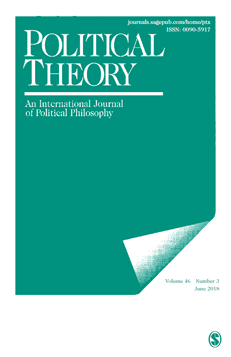 Against Marriage is reviewed by Tamara Metz, author of Untying the Knot, in Political Theory. You can read the full review here. An excerpt follows.
Against Marriage is reviewed by Tamara Metz, author of Untying the Knot, in Political Theory. You can read the full review here. An excerpt follows.“This is a distinct and important contribution to an increasingly crowded field of liberal political philosophy on marriage and the state and, perhaps most interestingly, to our understanding of the liberal project broadly. … Where other liberals seek more vigorously to balance competing demands of freedom and equality, or emphasize freedom, Chambers hews rigorously to an egalitarian position. You won’t find another book that does this so effectively or by way of such productive engagement with existing scholarship. Laying out the egalitarian case in such clear and compelling terms, Chambers highlights the challenges it presents to the liberal side of her liberal feminist equation. In so doing, Against Marriage leaves us wondering just how tenable the liberal feminist project is.”
“Chambers leads us to these questions by bringing us to the edge of the liberal feminist frontier. This alone would make Against Marriage a distinct and important contribution. But, of course, Chambers does more. She offers a compelling vision of why and how to move beyond marriage and points us in the direction of work that needs to be done. All with the grace and graciousness of an analytical philosopher running at full throttle.”
-
Against Marriage on JHIB blog
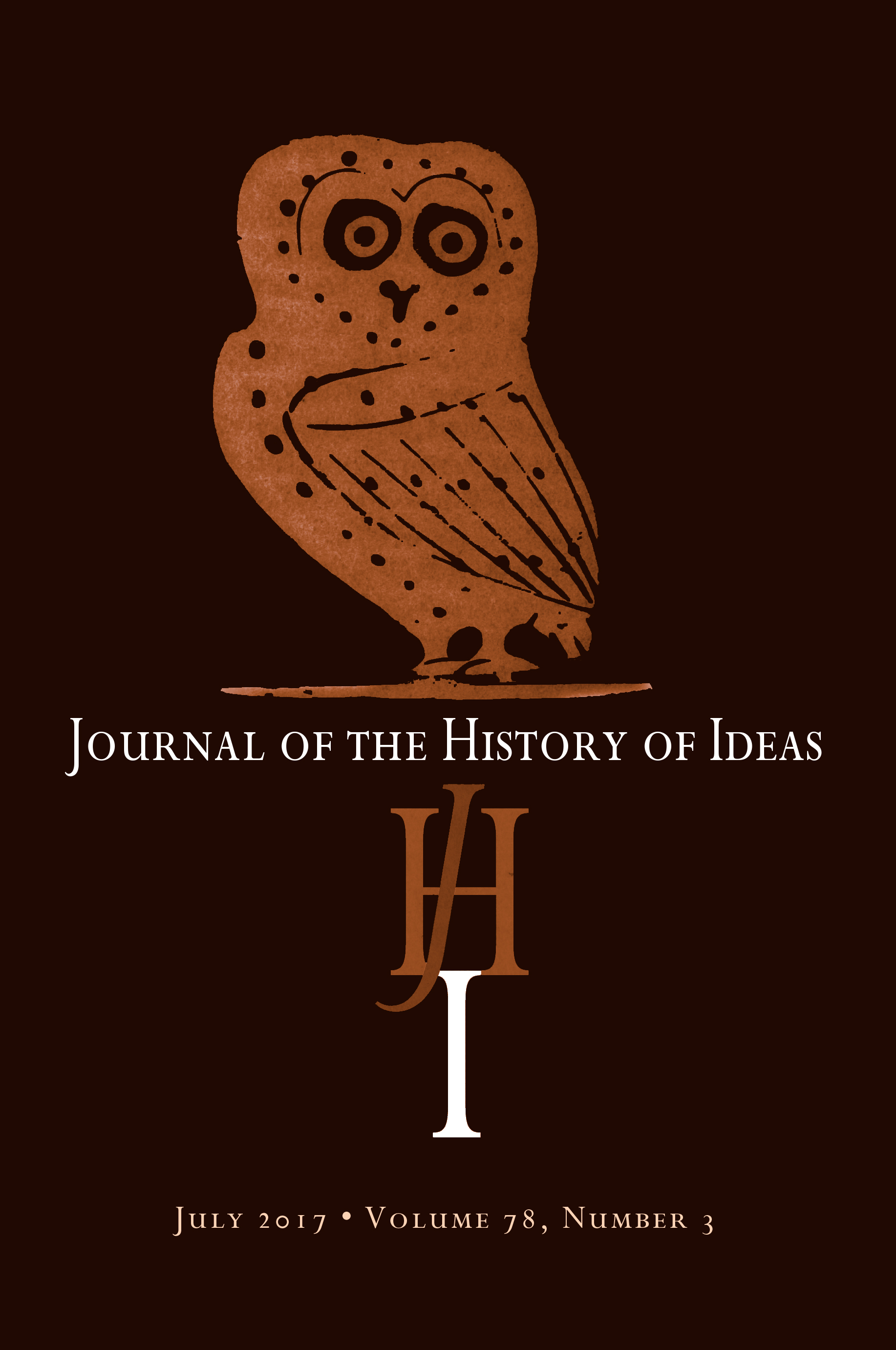 My Aeon article “Against Marriage” was recommended by the Journal for the History of Ideas Blog here.
My Aeon article “Against Marriage” was recommended by the Journal for the History of Ideas Blog here. -
Times of India on Against Marriage
 The Times of India featured my Aeon article “Against Marriage” on 22 April 2018. You can read the coverage here.
The Times of India featured my Aeon article “Against Marriage” on 22 April 2018. You can read the coverage here. -
Against Marriage at Aeon
 I have a 3,300 word essay on “Against Marriage” at Aeon magazine. You can read the article here.
I have a 3,300 word essay on “Against Marriage” at Aeon magazine. You can read the article here. -
Against Marriage at APT books
Against Marriage is featured in the New Books By Members section of the US Association for Political Theory. You can see the page here.
-
Against Marriage on BMJ blog
 Richard Smith writes in the British Medical Journal (BMJ) blog that he is persuaded by the arguments of Against Marriage. You can read the full article here.
Richard Smith writes in the British Medical Journal (BMJ) blog that he is persuaded by the arguments of Against Marriage. You can read the full article here.“Chambers is against marriage on the grounds of equality and liberty. Women are not equal with men within marriage, and the state by attaching a bundle of rights and duties to marriage creates a hierarchy of relationships with marriage at the top, making unmarried couples and single people inferior. Much of the population, including my wife and I, thinks that “common law wives” have similar rights to married women, but in fact they have none. By bundling rights and duties together, marriage (and civil partnerships) restrict autonomy; if they weren’t bundled people might choose different combinations of rights and duties.
“There is a need, Chambers accepted, for the law to regulate relationships, particularly to protect the vulnerable, but neither marriage nor civil partnership, which all the speakers criticised as being “one size fits all,” need to be that mechanism. She pointed out that parenthood might be a better basis for regulation than marriage, not least because parent-child relationships are more durable than couple relationships. Tatchell advocates a model whereby people would select “any significant other” (perhaps a best friend, sibling, or lover) and then choose among a menu of rights and duties. Such an arrangement would lead to greater equality and autonomy. All three speakers agreed that something along those lines would be better than either marriage or civil partnerships.
“And at dinner afterwards, my wife and I, despite being married for 40 years, agreed.”
-
The Politics of Marriage at LSE Forum
 Marriage is an odd mix of sex, religion, and politics. Our speakers ask what marriage is and whether there is there any distinctive moral value in it. Should the state promote it? Is it possible to have an ‘equal’ marriage, or is marriage fundamentally an oppressive institution? Should marriage be rejected in favour of civil partnerships, or something else, or perhaps nothing else?
Marriage is an odd mix of sex, religion, and politics. Our speakers ask what marriage is and whether there is there any distinctive moral value in it. Should the state promote it? Is it possible to have an ‘equal’ marriage, or is marriage fundamentally an oppressive institution? Should marriage be rejected in favour of civil partnerships, or something else, or perhaps nothing else?You can watch a video of the event and listen to the podcast here.
Speakers
Clare Chambers
Senior Lecturer in Philosophy, University of CambridgeSir Paul Coleridge
Former high court judge and Chairman, The Marriage FoundationPeter Tatchell
Activist and Director of the Peter Tatchell FoundationChair
Fellow, The Forum
Senior Lecturer in Philosophy, King’s College London
